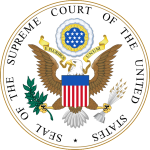 Damon Root of monthly publishing Reason reported today that the Supreme Court has decided on a case questioning the states of Minnesota and North Dakota right to criminally charge people for refusing a warrantless blood test and separately a warrantless breath test. This blog has covered the case of Birchfield V North Dakota and the concerns that the state could potentially violate a citizens fourth amendment rights by being able to charge them criminally for a warrantless blood test and breath test. The court partly struck down the North Dakota state governments desire today. Root explains:
Damon Root of monthly publishing Reason reported today that the Supreme Court has decided on a case questioning the states of Minnesota and North Dakota right to criminally charge people for refusing a warrantless blood test and separately a warrantless breath test. This blog has covered the case of Birchfield V North Dakota and the concerns that the state could potentially violate a citizens fourth amendment rights by being able to charge them criminally for a warrantless blood test and breath test. The court partly struck down the North Dakota state governments desire today. Root explains:
“Today the U.S. Supreme Court struck down a North Dakota law that imposes criminal penalties on suspected drunk drivers who refuse to submit to a warrantless blood test. At the same time, the Court declined to strike down statutes from North Dakota and Minnesota that impose similar criminal penalties on suspected drunk drivers who refuse to submit to warrantless breath tests. Writing for the majority in Birchfield v. North Dakota, Justice Samuel Alioto held that the Fourth Amendment forbids the police from conducting warrantless blood tests. Warrantless breath tests, on the other hand, were deemed constitutionally permissible by today’s decision.”
So at least the idea that there should be criminal penalties for refusing a warrantless blood test was shut down, that’s at least half a win for the 4th Amendment. But half a win is hardly a full one as criminal penalties can and will still be given for refusing warrantless breath tests. That invasion of privacy is only minor according to the courts. Root writes:
“The Fourth Amendment permits warrantless breath tests incident to arrests for drunk driving. The impact of breath tests on privacy is slight, and the need for BAC testing is great,” Alioto wrote. But “we reach a different conclusion with respect to blood tests. Blood tests are significantly more intrusive, and their reasonableness must be judged in light of the availability of the less invasive alternative of a breath test. Respondents have offered no satisfactory justification for demanding the more intrusive alternative without a warrant.”
So what we have here is measuring the level of intrusiveness for these measures and because the invasion of privacy is only “slight” compared to the need to do BAC testing which is “great.” This reminds me of just this week when Thomas went on about “social costs” of dismissing certain evidence too high. Thomas had an opinion that clearly showed his belief that the fourth amendment should be sacrificed if societal benefits outweigh its interests. First here’s what Root had to say of one of the dissenting opinions, led by Justice Sonia Sotomayor:
“Because no governmental interest categorically makes it impractical for an officer to obtain a warrant before measuring a driver’s alcohol level, the Fourth Amendment prohibits such searches without a warrant, unless exigent circumstances exist in a particular case,” Sotomayor wrote. In other words, Sotomayor would have voided both types of warrantless DUI tests for violating the Fourth Amendment.”
Sotomayor is strong on the 4th amendment as a Justice as evidenced by this opinion and many others, including one just this week. Sotomayor was a dissenting opinion on the Streiff V Utah case stating that the police committed a 4th amendment violation which should be grounds to dismiss any evidence of a drug search. Thomas however has been very staunch about not letting the fourth amendment get in the Governments way:
“Justice Clarence Thomas also wrote separately, taking the exact opposite position of Sotomayor. Thomas concurred in the majority’s judgment to allow warrantless breath tests, but he dissented from the majority’s refusal to allow warrantless blood tests. In Thomas’ view, the Fourth Amendment should be read to permit both types of warrantless searches of suspected drunk drivers. “Both searches contemplated by the state laws at issue in these cases would be constitutional under the exigent-circumstances exception to the warrant requirement.,” Thomas wrote
Thomas has not been an advocate of the 4th amendment this week to be completely frank, as he doesn’t even want to eliminate criminal charges for warrantless blood tests. The rest of the USSC ruling can be read here and once again Laura Law is always happy to help anyone who feels their fourth amendment has been violated within the State of Illinois.

